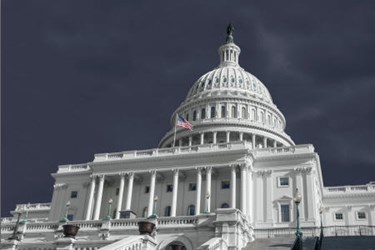Government IT News For VARs — June 4, 2014
By Megan Williams, contributing writer

In the news, the GSA has determined its schedules program to be “very healthy.” Also, The NSF has awarded $15 million in three projects focused on developing, deploying, and testing future Internet architectures.
GSA Says Schedules Healthy
Federal News Radio reports that the General Services Administration (GSA) has determined its schedules program to be “very healthy.” The radio show speaks with FSA acquisition operations director, Jim Ghiloni. Ghiloni describes the schedules as an “evolving program” and says that the federal marketplace is also evolving and changing in response to customer requirements. Keeping with that evolution through modernization and staying on top of customer demand, are important factors to the administration in their efforts to keep the schedules healthy and relevant in the future.
Justice Department Files False Claims Act Suit Against CA Technologies
The Justice Department, according to Federal News Radio, has accused CA Technologies of violating the False Claims Act in conducting business under its GSA schedules contract. The department claims that CA Technologies failed to properly apply the price reduction clause going as far back as 2002. The department is also claiming that the company knowingly overcharged the government for software maintenance and licenses since 2006. It appears that CA Tech failed to monitor discounts that were given to other customers, and in turn, failed to give those discounts to the government. CA Technologies says that the claims are unfounded, and plans to fight the allegations vigorously.
NSF Invests In Advanced Internet Architecture
The National Science Foundation (NSF), according to InformationWeek, has awarded $15 million to three projects focused on developing, deploying, and testing future Internet architectures. These architectures include networking concepts and communications protocols in real-world environments. The awards are a continuation of four projects that were funded through the Future Internet Architectures program. The projects were MobilityFirst, Nebula, eXpressive Internet Architecture, and Named Data networking. They were given $8 million over a three year period to build “a more robust Internet.”
Governors Sign Electric Vehicle Promotion Pact
According to Government Technology, governors from eight states signed an agreement to get more electric vehicles into use. The plan provides a list of activities (from which each state can choose) to meet the over-arching goal of 3.3 million zero-emission vehicles in use in the U.S. by 2025. The states who’ve signed on the 11-point plan are California, Connecticut, Maryland, Massachusetts, New York, Oregon, Rhode Island, and Vermont. The governors involved are hopeful that the move will send a signal to auto makers that they are serious about their intentions to promote the sale of electric cars.
Government IT Talking Points
In response to the White House’s 90-day review of Big Data and privacy, CIO magazine advises that CIOs who are considering working with Big Data to take a deeper look at privacy initiatives. The article further states that CIOs are obligated to educate themselves around the risks inherent in the use of Big Data, as their jobs shift to include more inherent risk management responsibilities.
Mark Weber, president and general manager of NetAPP, discusses four tech trends that government agency leaders should be giving their attention to, in order to improve government performance through technology and efficiency. Weber names the following four areas:
- The cloud
- Shared services
- eGovernment
- Cyber security
Read more at Data Center Knowledge.
For more news and insights, visit BSMinfo’s Government IT Resource Center.
